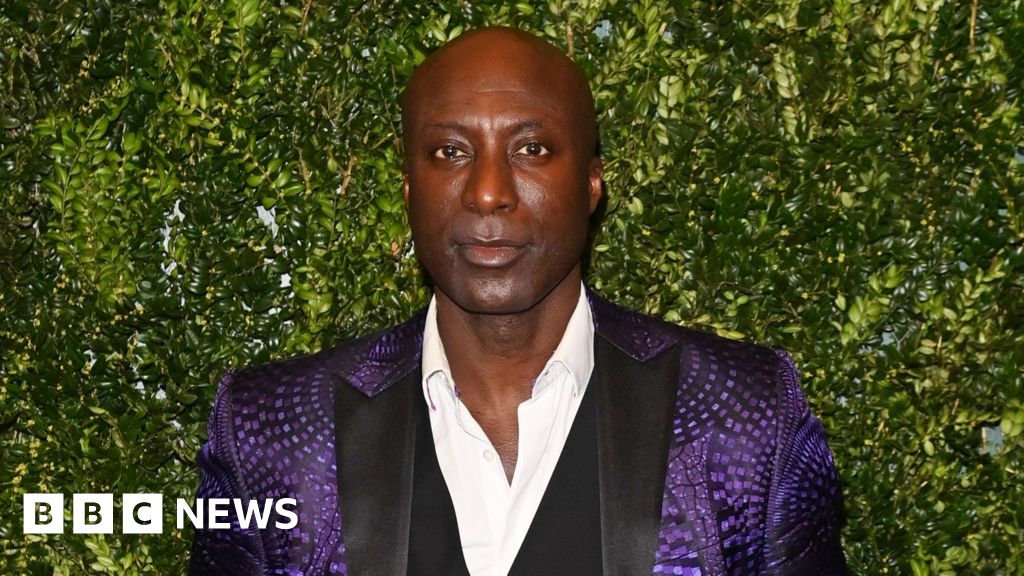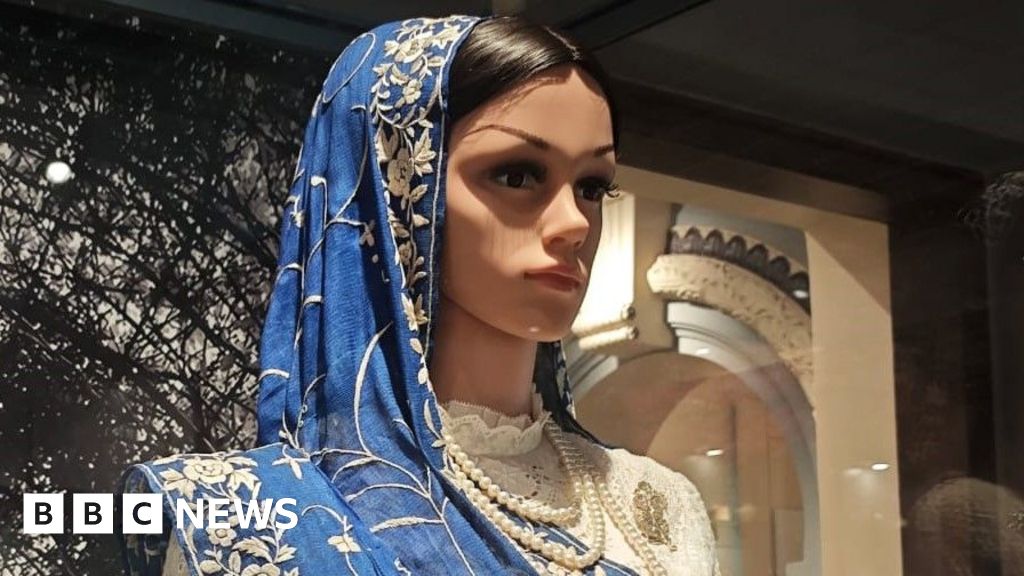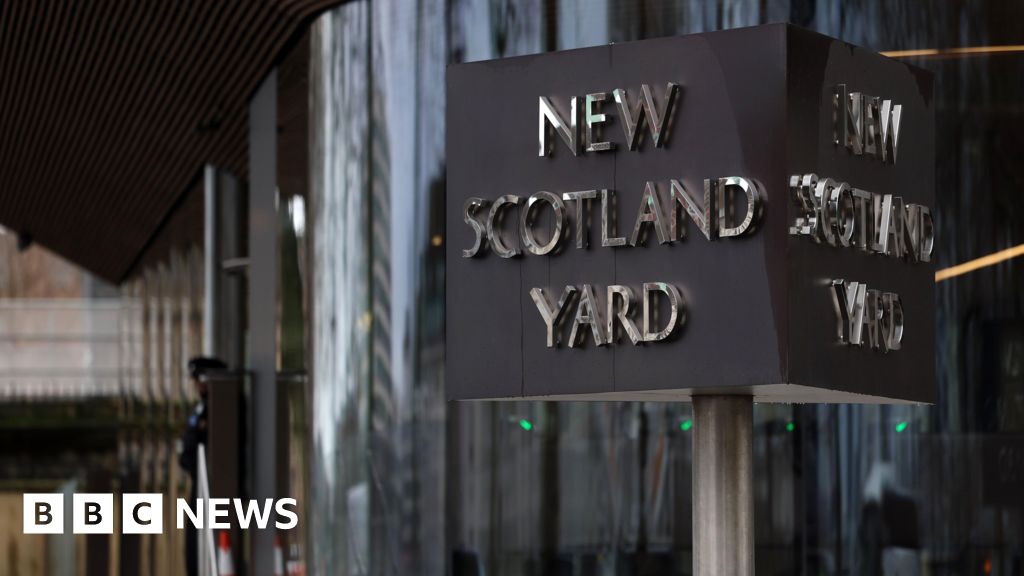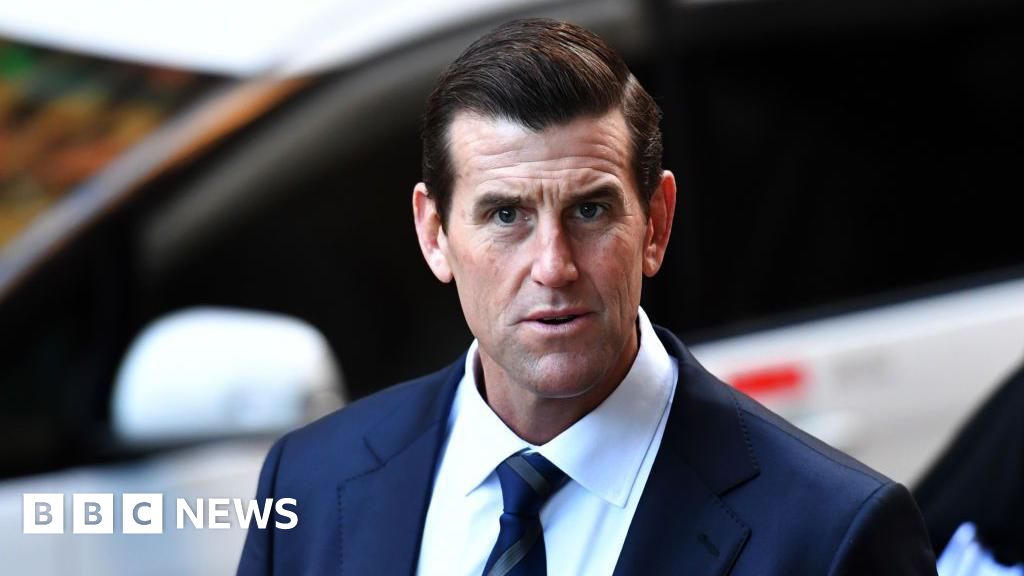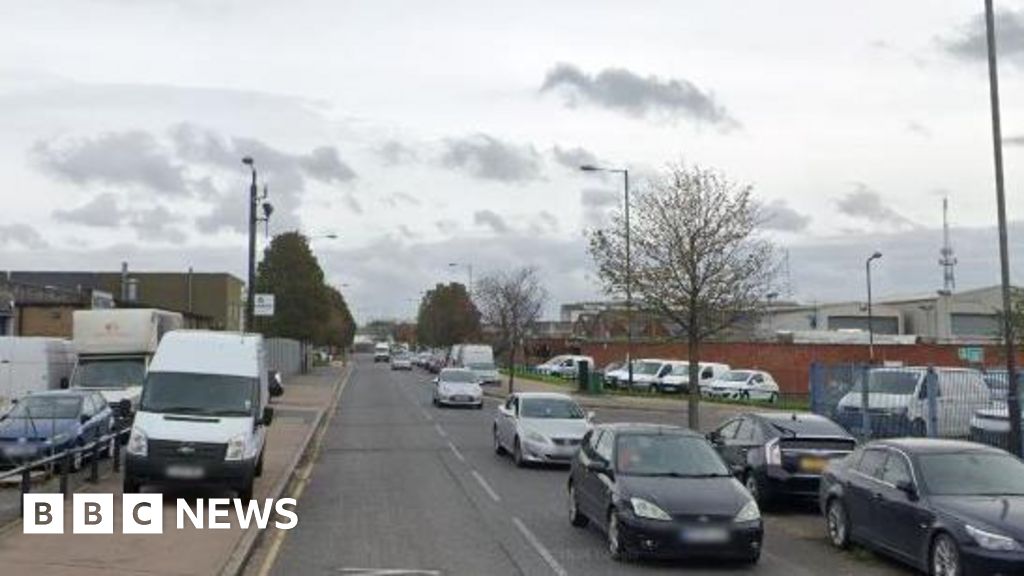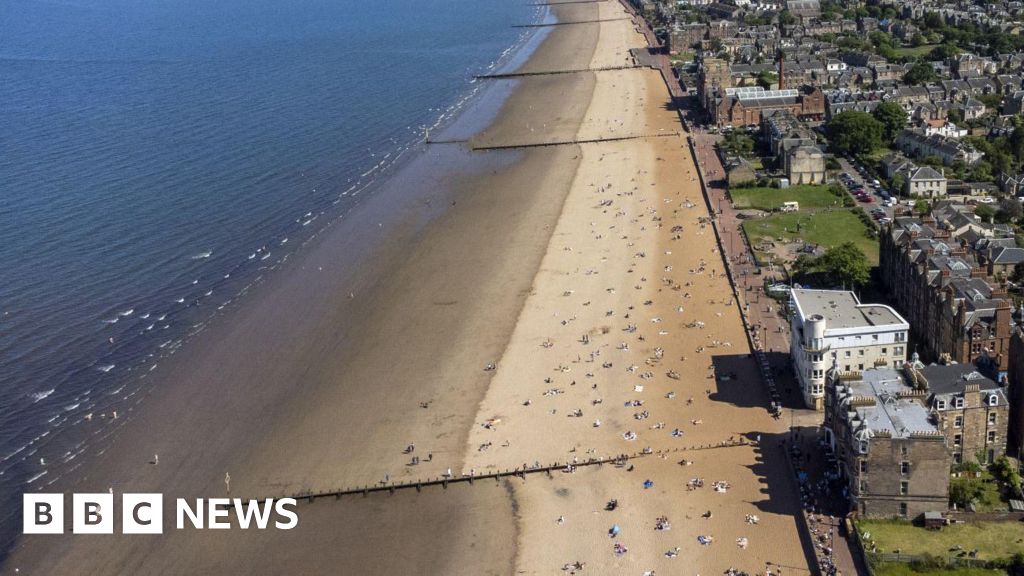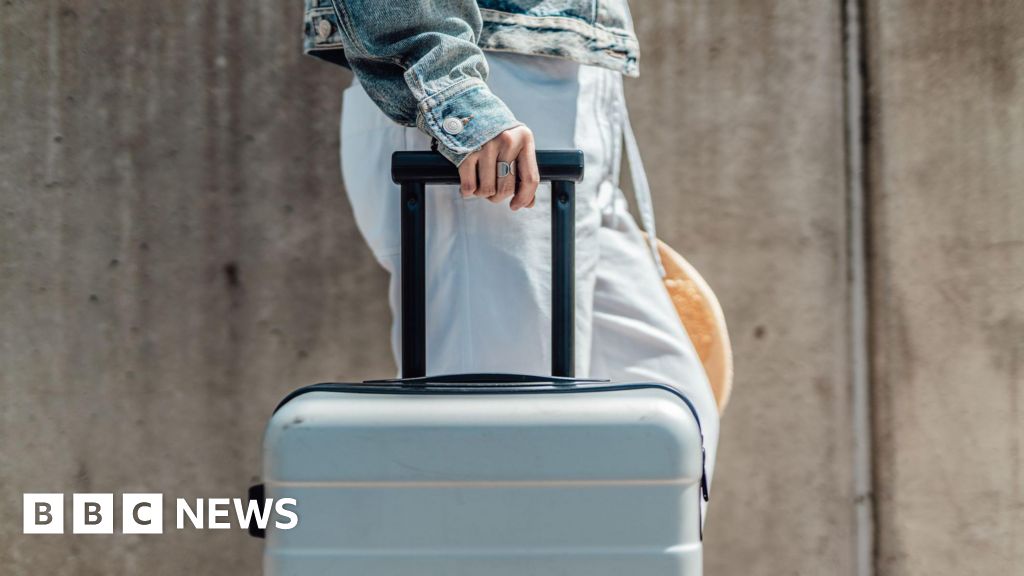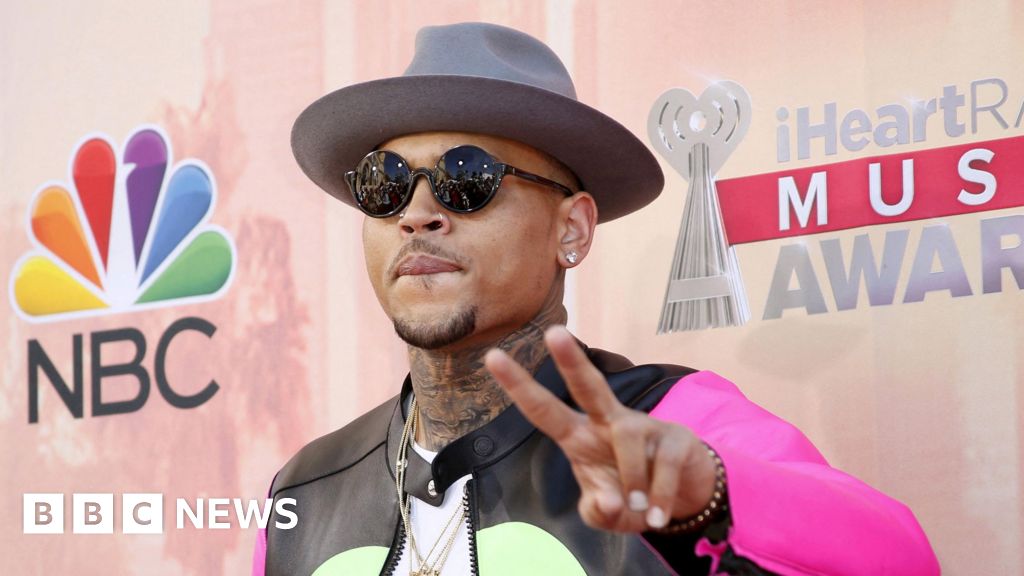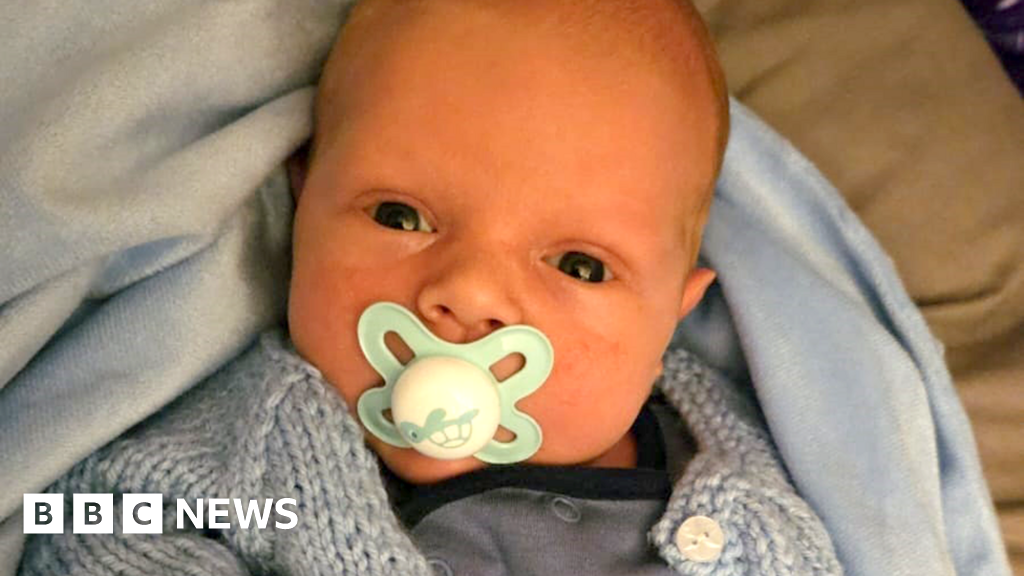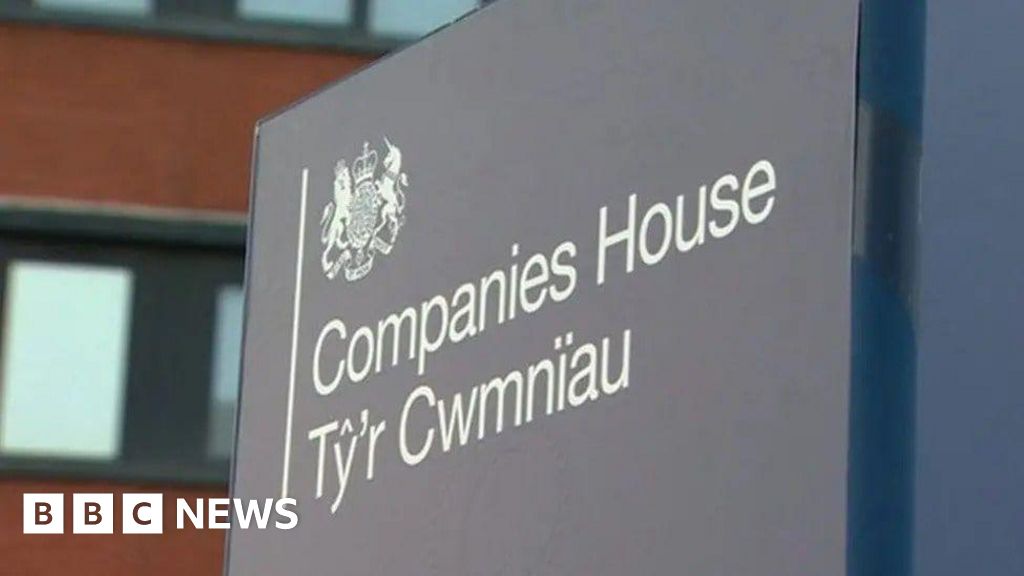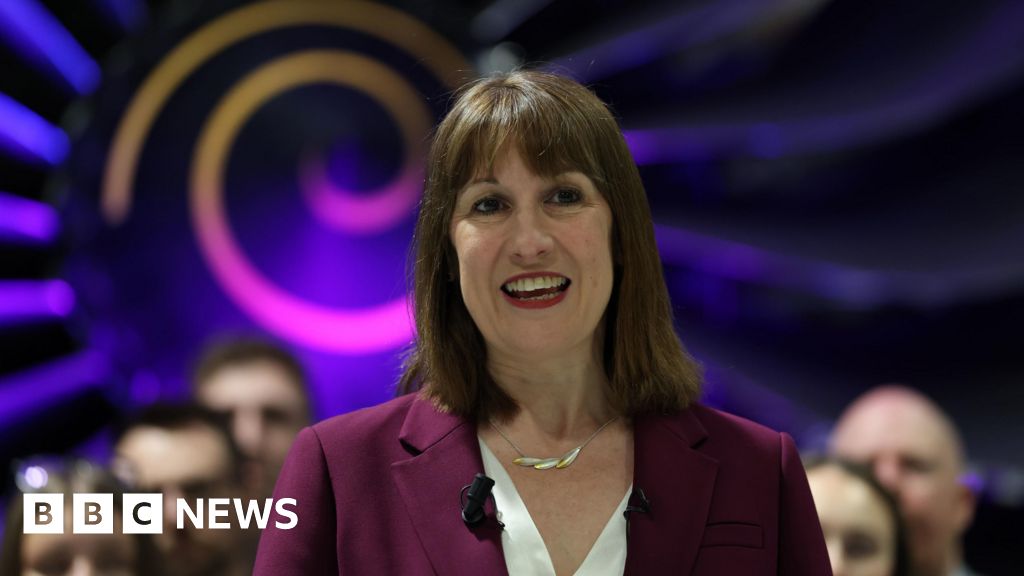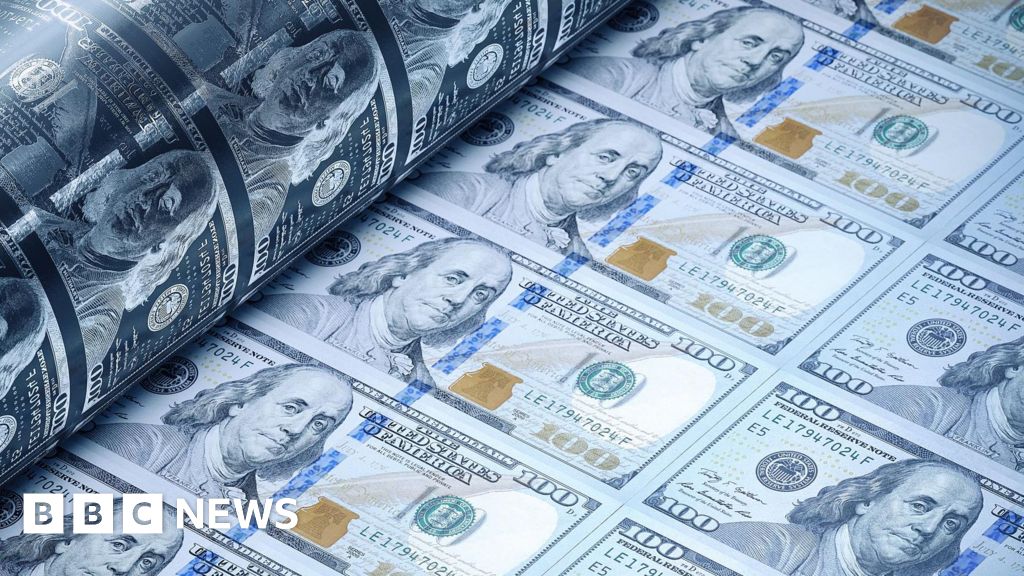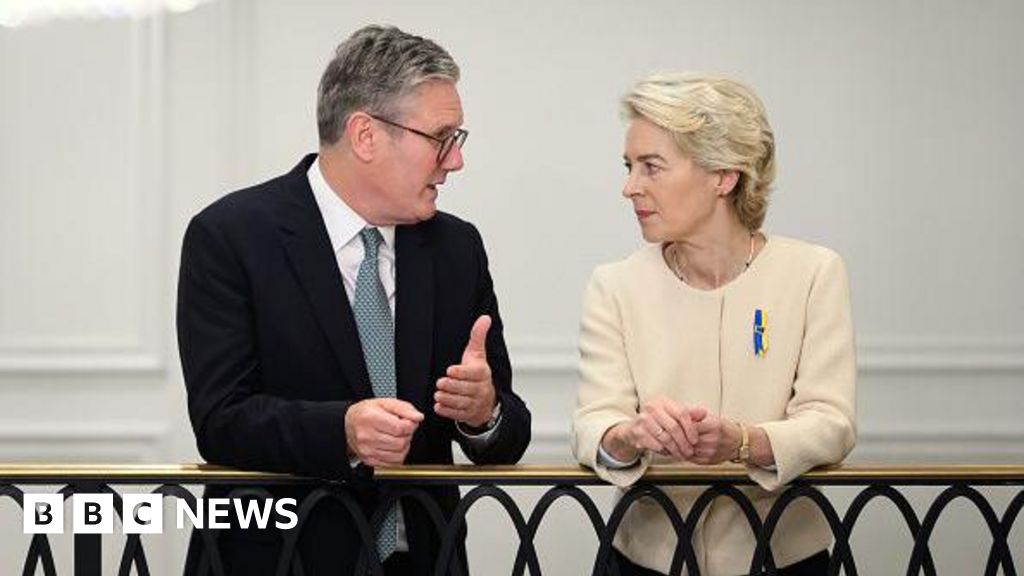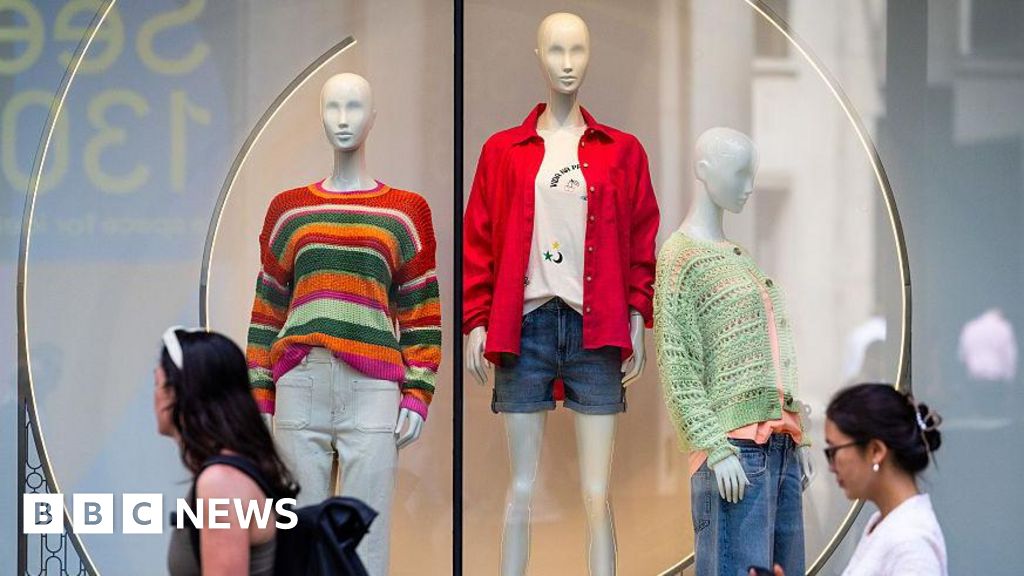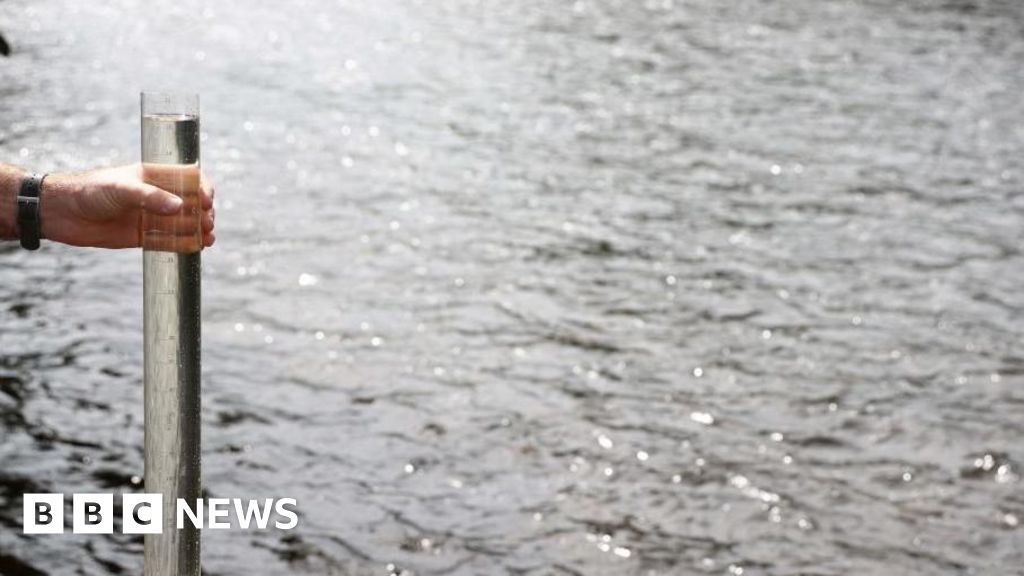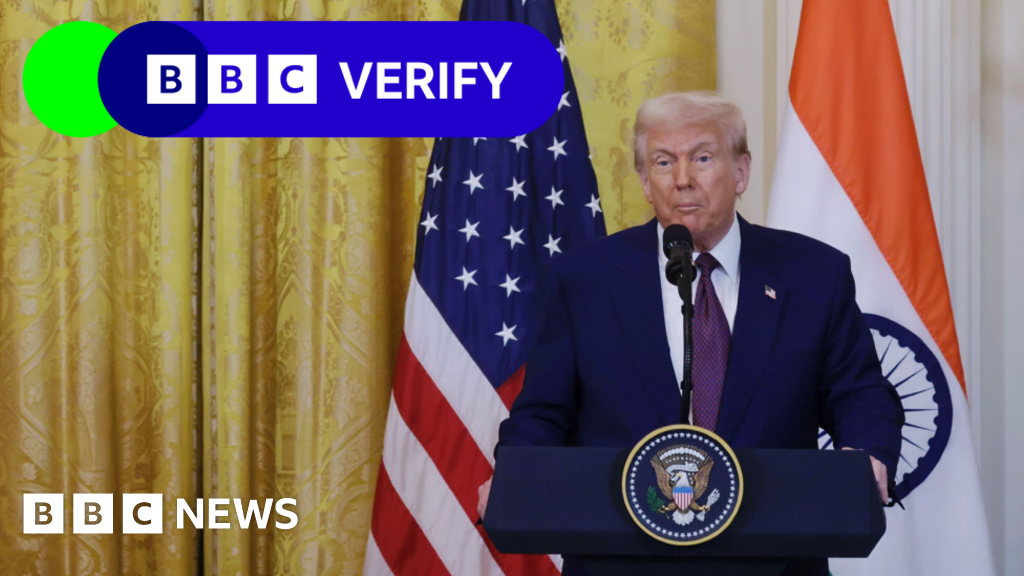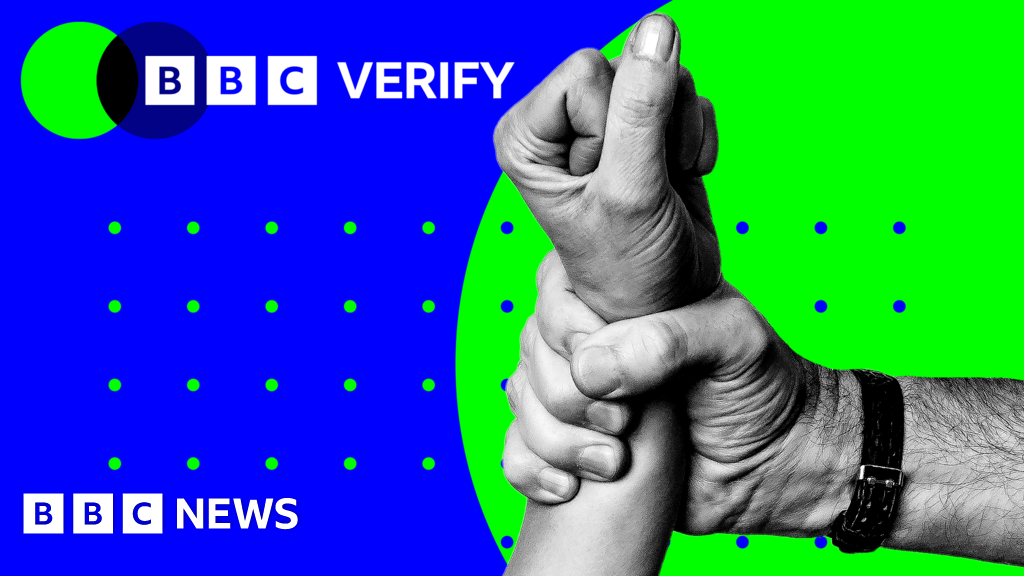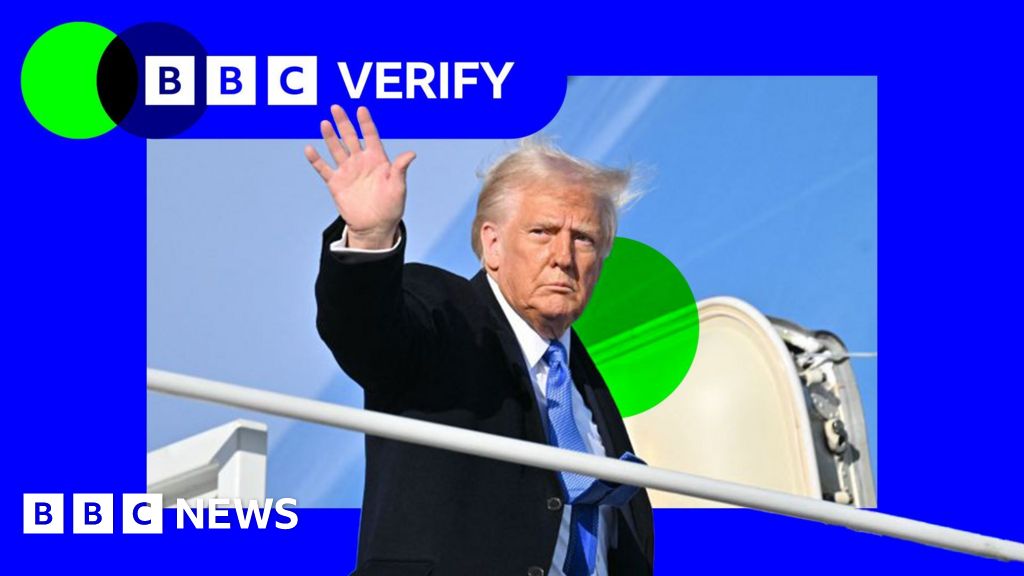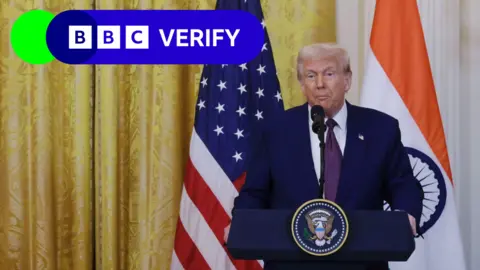 EPA-EFE/REX/Shutterstock
EPA-EFE/REX/ShutterstockDonald Trump has ordered his team to come up with plans to impose a new set of taxes – known as tariffs – on goods coming into the United States.
Trump wants to introduce “reciprocal tariffs” – taxes on imports to the US which are set at a similar rate to taxes other countries put on goods they import from the US.
The president says other countries often have higher tariffs on imports from the US than the other way round and believes America “has been treated unfairly by trading partners, both friend and foe”.
BBC Verify has explored whether he has a valid case.
How do countries set tariffs on imports?
First, it is important to understand the rules of global trade.
Under the terms of membership of the World Trade Organisation (WTO), countries are permitted to impose tariffs on imports.
Those tariffs can differ depending on the item being imported.
So, for instance, a nation can impose a 10% levy on rice imports and a 25% tariff on car imports.
But under WTO rules, they are not supposed to discriminate between nations when setting the tariff they charge on a particular imported good.
So Egypt, for example, would not be allowed to impose a 2% tariff on wheat coming from Russia, but a 50% tariff on wheat coming from Ukraine.
This is known as the “Most Favoured Nation” (MFN) principle in international trade: everyone has to be subject to the same tariff by the country imposing the tariff.
There is an exception when two nations sign a free trade agreement between themselves that covers most of their trade. Under these circumstances they can charge no tariffs on goods passing between them but maintain tariffs on goods coming from everywhere else in the world.
What tariffs do countries currently have?
While most countries have a range of tariff rates covering different goods imports, they also report an average external tariff to the WTO, which reflects the overall average tariff rate applied to all imports.
The US had an average external tariff of 3.3% in 2023.
That was slightly lower than the UK’s average tariff of 3.8%.
It was also below the European Union’s average tariff of 5% and China’s average tariff of 7.5%.
America’s average tariff was considerably lower than the average tariff of some of its other trading partners.
For instance, India’s average tariff was 17%, while South Korea’s was 13.4%.
America’s average tariff was lower than Mexico’s (6.8%) and Canada’s (3.8%), though trade agreements between the US and these countries mean that American exports to them are not subject to tariffs. The same is true for South Korea, with which the US has a free trade agreement
But, broadly speaking, it is legitimate for Trump to point out that some countries have a higher average tariff on imports than America’s.
And those tariffs push up the cost of many American exports to those countries, which might be said to disadvantage US exporters relative to exporters in those countries selling into the US.
However, whether this amounts to unfair trade that serves to harm the US is not clear cut.
Most economists judge that the costs of import tariffs are, ultimately, borne by households in the country that imposes them because they can mean that imported goods become more expensive.
This could mean nations with higher average external tariffs than the US would be penalising their own consumers rather than Americans.
How might a reciprocal tariff work?
On 10 February, Trump suggested it could mean the US imposing the same average external tariff on imports from each individual nation as those countries impose.
He told reporters: “If they charge us, we charge them. If they’re at 25, we’re at 25. If they’re at 10, we’re at 10.”
This would likely break the MFN rules of the WTO, which require a nation to impose the same tariff on particular goods, regardless of where they came from.
If the US imposed, say, a tariff of 9.4% on all goods coming from Vietnam but 3.8% on all goods coming from the UK (the same as their own average external tariffs) that would be a breach of the rules.
If the US could show the targeted country was already itself breaching the organisation’s rules in some way it might be able to claim that specific retaliatory tariffs against that country are justified under WTO rules.
But simply imposing reciprocal tariffs as a general principle would likely constitute a breach.
What about reciprocal tariffs on individual goods?
Another possibility is that Trump could attempt to match not average national tariff rates, but tariff rates on individual items imposed by different countries.
For example, the EU imposes a 10% tariff on all imported cars from outside the bloc, including from America.
But the US imposes only a 2.5% tariff on imported cars, including those from the EU.
The US might decide to impose a 10% tariff on cars from the EU in order to level the playing field.
However, if it tried to match tariffs on every type of import with every different country this would be an extremely lengthy and complex exercise, given the vast range of goods involved in global trade and the distinct tariff regimes operated by the 166 members of the WTO.
Trump’s official memorandum outlining the policy said the administration’s reciprocal tariffs might also be designed to offset so called “non-tariff barriers” to trade such as other countries’ regulations, domestic subsidies, currency values and Value Added Taxes (VAT).
America does not charge VAT on goods, but most other nations do, including the UK.
This could make the exercise of designing the tariffs even more complex.
While economists agree that domestic regulations and subsidies can constitute important non-tariff barriers to trade, they insist that VAT does not fall into this category because it is levied on all goods sold domestically, and therefore does not lead to any relative cost disadvantage for imports from the US.
The WTO does not list VAT as a trade barrier.
Could US tariffs actually come down?
If Trump were serious about exactly matching individual tariffs from other nations it could also, in theory, require the US to lower some tariffs, not to raise them.
The US has higher tariffs on certain agricultural products than some of its trading partners.
For instance, the US currently imposes effective tariffs on many milk imports of more than 10%. But New Zealand, a major global milk producer, has 0% tariffs on its dairy imports.
The US milk tariffs are designed to protect US dairy farmers, including many in the swing state of Wisconsin, and lowering the tariff for milk exporters from New Zealand would likely face political resistance from politicians from that state.
Similarly, a genuinely reciprocal US tariff regime based on individual goods would pose challenges for the US automotive industry.
The US imposes a 25% tariff on imported trucks, including from the EU.
But the EU’s own tariff on imported trucks, including from the US, is only 10%.
So a US reciprocal tariff with the EU on imported trucks would, in theory, mean the US lowering its tariff here.
While a reciprocal tariff on EU cars might be welcomed by American automakers, a reciprocal tariff on EU trucks might not be.
However, Trump on Thursday made clear that some of his planned tariffs such as on steel and aluminium would be “over and above” his reciprocal tariffs, suggesting that true reciprocity on trade is not, in fact, his principal objective.




